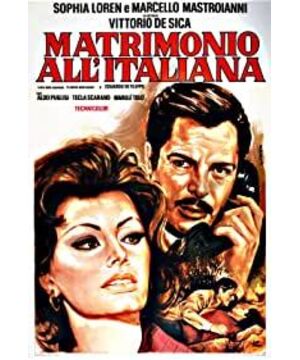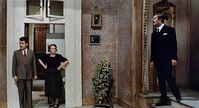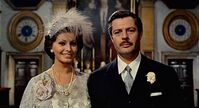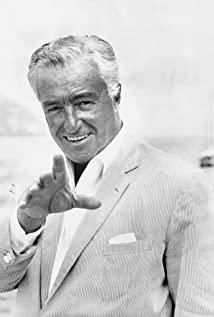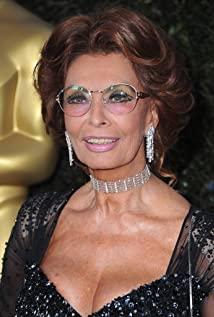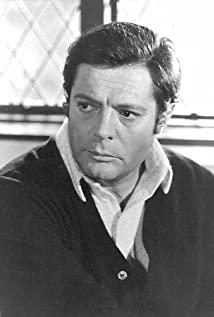Directed by De Sica and starring Sofia Loren and Marcello Mastroiani, the film is based on De Filippo's Neapolitan-dialect comedy Ferrumeina Marturano. "Adapted.
Eduardo de Filippo is one of the most influential representatives of Italian drama in the 20th century. He wrote, directed and acted in one. He wrote and performed many comedies in Neapolitan dialect, showing the style of Naples. The joys and sorrows of ordinary Neapolitans.
The director of the film renamed the original "Ferromena Marturano" as "Italian Marriage". First, it was to change this play, which is dominated by the heroine, into a performance with equal emphasis on both male and female protagonists. Roland and Mastrojani, two superstars in the film industry, joined hands to obtain the best effect; the second is the need of director De Sica's artistic re-creation. De Sica abandoned the way of weaving the plot centering on Ferumina's personal life in the original work, and concentrated on writing and ink, focusing on the leading clue of "marriage" between them, developing ingenious ideas and carrying out in-depth ethics. , Cultural discussion. Therefore, the director of the film not only retains the ideological connotation and artistic characteristics of De Filippo's original works, but also strengthens the ethical exploration and psychological characterization, so that the comedy has more of the taste of the drama, and has achieved attractive results. Eye-catching dramatic effect.
At the end of the film, Dominico asks who of the three children is his biological son, a scene that brings the dramatic conflict to a climax with deep meaning. This plot is reminiscent of a famous story in Boccaccio's Decameron, the precursor of the Italian Renaissance. The first day of Boccaccio's "Ten Days" recounted such a story: The sultan of Babylon, who was fighting in arms, had an empty treasury. Which of the three Catholics is considered authentic? Mackide then told a story, saying that there was once a rich man who had three sons under his knees. According to the ancestral teaching, whoever got a big ring as a family heirloom would be the head of the family, but he didn't care about the three sons. The son loves him, no matter what. Later, he asked the craftsman to make two other rings, the same as the original ones. He distributed the three rings to his three sons. In this way, after the death of the old man, who of the three sons can become the parent remains an unsolved case. Mackide told this story and was able to escape the trap set by the sultan. Boccaccio borrowed this accident in order to elucidate the humanistic thought of the Renaissance, to praise people's ingenuity, and to show that Judaism, Islam, and Catholicism are equally valuable and authentic, and people should not interact with each other. hatred, but to love each other, to establish an equal and harmonious relationship.
The great German writer Lessing picked up the famous story of the three rings in the poetic drama "Nathan the Wise" to promote the ideals of tolerance and fraternity of the Enlightenment movement.
As an outstanding representative of contemporary Italian national drama, De Filippo's creative ideas are inextricably linked with the Italian humanist tradition. De Sica, on the other hand, retains the plot derived from the story of Boccaccio's three rings in De Filippo's original work, and carefully portrays it with twists and turns. Ferumena summoned three sons and told Dominico that one of them was his own son. This news was like a bolt from the blue, giving Dominico the first great mental shock to the complacent Dominico. He was chaotic and could no longer calm down. This shock was undoubtedly a turning point for his later thought. When he planned to reconcile with Ferumena and become a couple, and asked who of the three sons was his own son, Ferumena politely refused, but said that these three children were their sons, and the same Flesh and blood. Ferrumina's words were simple and ordinary, and powerful. Everyone has equal rights in the family and society, and the humanistic thought of maintaining their own dignity shines brightly here; the ethics and morality of the bourgeoisie are ashamed in front of it, and they are losing ground.
The director of the film has inherited the humanistic tradition of the ancestors of the Renaissance artists, and made publicity under the new historical conditions. No matter how high or low one's origin and social status are, the humanist ideal of establishing an equal and harmonious fraternal relationship between people still shows its loftiness and reality in today's developed capitalist society . It overcomes the power of money and the desire for self-interest, and has the power to cleanse the filth of people's spiritual world and purify people's souls. In this way, the plot, which is neatly and naturally narrated at the end of the film, can be called the finishing touch and is quite deafening.
View more about Marriage Italian Style reviews


